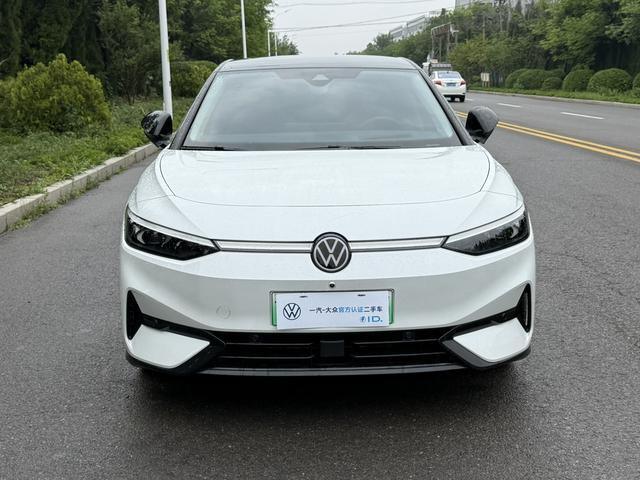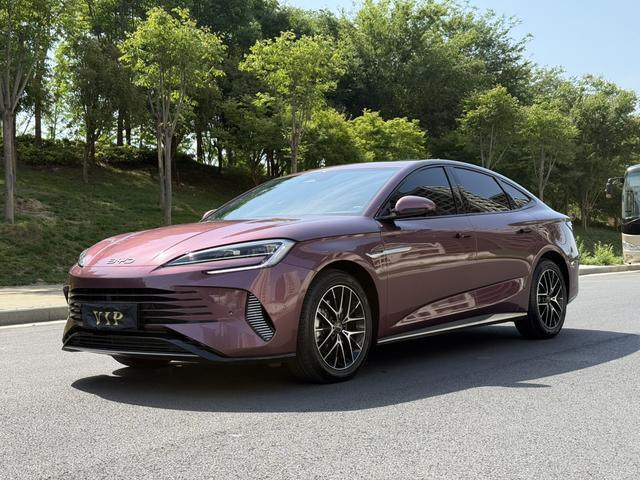The Rise of Urban Mobility and Cleaner Transportation
As cities become more crowded and environmentally conscious, the demand for cleaner, quieter, and more efficient ways to get around has never been higher. One solution stands out: electric vehicles. Whether you’re navigating tight city streets, battling rush-hour traffic, or searching for parking in packed urban neighborhoods, electric vehicles offer clear advantages that make them the perfect choice for modern city commuting.
Environmental Impact and Urban Air Quality
Reducing Urban Pollution with Electric Vehicles
Air pollution is a major concern in many urban areas, and vehicles powered by fossil fuels are among the top contributors. Electric vehicles produce zero tailpipe emissions, meaning they don’t release harmful gases like nitrogen oxides or carbon monoxide into the air. This leads to significantly improved air quality in cities where EV adoption is high, contributing to better health outcomes and a more pleasant urban environment.
Furthermore, many cities are enacting strict environmental regulations aimed at reducing vehicle emissions. Electric vehicles naturally align with these goals and help drivers avoid potential fines, restrictions, or limited access to low-emission zones.
Supporting Climate Goals Through Everyday Driving
Beyond local air quality, electric vehicles also play a critical role in combating climate change. With the global focus shifting toward decarbonization, daily commutes in electric vehicles significantly reduce personal carbon footprints. As more cities invest in renewable energy infrastructure, the electricity powering these vehicles becomes cleaner, amplifying the climate benefits.
For city dwellers who care about sustainability, switching to an electric vehicle is a practical and meaningful way to support global climate goals while enjoying daily convenience.
Efficiency and Performance in Stop-and-Go Traffic
Instant Torque for City Driving
Electric vehicles deliver instant torque from a standstill, providing smooth and rapid acceleration ideal for city driving. Whether you’re merging into traffic, navigating through intersections, or moving through congested areas, the responsiveness of an electric motor outperforms traditional internal combustion engines in urban conditions.
Unlike conventional cars that rely on gear shifting, electric vehicles offer seamless acceleration. This not only enhances the driving experience but also reduces wear and tear caused by frequent stop-and-go traffic, extending the life of the vehicle’s components.
Regenerative Braking Boosts Efficiency
In city environments where braking is frequent, regenerative braking becomes a valuable feature. Electric vehicles capture kinetic energy when braking and convert it into electricity that recharges the battery. This process improves overall energy efficiency and reduces the reliance on external charging.
Not only does regenerative braking make electric vehicles more efficient, but it also reduces brake wear, lowering maintenance costs over time—another compelling advantage for budget-conscious city drivers.

Cost Savings for Daily Commuters
Lower Fuel Costs and Incentives
Electricity is generally much cheaper than gasoline or diesel, especially when charging at home during off-peak hours. Over time, this results in significant savings on fuel costs. Additionally, many governments and municipalities offer financial incentives for electric vehicle owners, such as tax credits, rebates, or toll exemptions, making ownership even more affordable.
For city commuters who drive daily, these savings add up quickly. Combined with fewer maintenance needs, electric vehicles become a financially attractive choice for long-term city commuting.
Minimal Maintenance and Long-Term Value
Because electric vehicles have fewer moving parts compared to traditional vehicles, maintenance requirements are lower. There's no need for oil changes, spark plug replacements, or transmission servicing. This not only saves money but also reduces the inconvenience of frequent trips to the mechanic.
Battery warranties, often lasting 8 years or more, further enhance the appeal of electric vehicles by ensuring long-term reliability. For city commuters who want a dependable and low-maintenance car, this feature adds immense value.
Charging Convenience and Infrastructure Growth
Home and Public Charging Options
One of the biggest concerns for potential electric vehicle owners is charging, but urban infrastructure is quickly evolving. Most city dwellers can install home chargers if they have dedicated parking, allowing them to charge overnight and wake up to a full battery.
Public charging stations are also becoming more widespread, especially in cities promoting sustainable mobility. Fast chargers allow for quick top-ups during the day, while workplace and retail chargers increase convenience during errands or commutes.
Urban Planning Supporting Electric Vehicles
Cities are increasingly integrating electric vehicle infrastructure into urban planning. Reserved parking spots with chargers, dedicated EV lanes, and charging hubs in public garages are becoming common sights. These developments ensure that charging is not just accessible but also integrated into everyday life.
For city commuters, this means reduced range anxiety and the flexibility to keep their vehicle powered up without major disruptions.
Compact Design and Urban Maneuverability
Easier Parking and Navigation
Urban areas are often plagued by limited parking and narrow streets. Electric vehicles, especially compact models, are easier to park and maneuver in tight spaces. Their smaller footprints make them ideal for cities where space is at a premium.
Advanced driver-assist features such as automated parking and 360-degree cameras, which are common in many electric vehicles, also simplify the urban driving experience. These tools reduce stress and make daily commuting smoother and safer.
Quieter, Smoother Rides in Busy Streets
Electric vehicles are notably quiet, reducing noise pollution in busy city centers. This makes for a more peaceful commute for drivers, passengers, and pedestrians alike. The silent operation of electric vehicles also contributes to less stressful traffic environments and better overall urban living conditions.
The smooth acceleration and lack of engine vibration further enhance comfort, especially during long traffic jams or daily multi-stop routes.
Smart Technology and Connectivity
Integrated Navigation and Real-Time Updates
Most electric vehicles come equipped with smart infotainment systems that offer real-time traffic updates, route optimization, and nearby charging station locations. These systems help city commuters avoid congestion and plan efficient routes, reducing overall travel time and energy use.
Voice controls and smartphone integration provide added convenience, allowing drivers to manage calls, messages, or navigation without taking their hands off the wheel. These features are especially beneficial in fast-paced urban environments.
Remote Monitoring and Mobile Control
With mobile apps connected to electric vehicles, drivers can monitor battery levels, schedule charging, locate their vehicle, and even pre-condition the cabin temperature. These features are extremely useful for city commuters who value time and efficiency.
Being able to remotely control and manage key functions not only adds convenience but also allows drivers to adapt to changing schedules or environmental conditions on the fly.
Aligning with Urban Sustainability Goals
Government Policies Favoring Electric Vehicles
Urban governments are aggressively promoting electric vehicles as part of their sustainable transportation strategies. Initiatives such as congestion pricing, emission zones, and vehicle registration benefits often favor electric vehicles, giving city commuters tangible advantages.
Being aligned with these urban policies not only ensures compliance but also provides a smoother experience in terms of access, parking, and road usage privileges. This alignment can make a noticeable difference in daily commuting life.
Corporate and Community Support for EV Adoption
From workplaces offering charging stations to apartment complexes integrating EV-ready parking spaces, the ecosystem supporting electric vehicles is rapidly expanding. Cities are also investing in awareness campaigns and pilot programs to accelerate EV adoption.
As electric vehicles become more integrated into the fabric of city life, ownership is no longer a novelty but a logical and supported choice for anyone commuting within the urban grid.
Future-Proofing Urban Transportation
Preparing for Autonomous and Shared Mobility
Electric vehicles are often the platform of choice for future mobility solutions such as autonomous driving and car-sharing networks. For commuters who want to stay ahead of trends and adapt to the evolving transportation landscape, owning an electric vehicle is a forward-thinking decision.
These vehicles are typically built with the latest sensors, connectivity, and software architecture, making them ready for upgrades and integration into future smart city systems.
Resale Value and Technological Longevity
As the market for electric vehicles grows, their resale value is stabilizing and even improving, especially for models with good range and modern features. This makes EVs not just practical for today, but a solid investment for the future.
With frequent over-the-air updates and modular designs, many electric vehicles remain technologically current for years, enhancing their long-term appeal and usability in fast-evolving urban environments.
FAQ
What is the typical range of electric vehicles for city commuting?
Most electric vehicles today offer ranges between 200 to 400 kilometers on a single charge, which is more than sufficient for daily city commutes. Urban driving typically consumes less battery due to lower speeds and regenerative braking.
Is charging an electric vehicle in the city difficult?
Charging infrastructure is rapidly expanding in cities, with a growing number of public charging stations, fast chargers, and even workplace or apartment building options. Home charging remains the most convenient for those with private parking.
How do electric vehicles perform in heavy traffic?
Electric vehicles excel in heavy traffic thanks to their instant torque, quiet operation, and energy recovery through regenerative braking. They are well-suited for stop-and-go driving conditions common in urban areas.
Are electric vehicles more expensive to maintain than traditional cars?
No. In fact, electric vehicles typically have lower maintenance costs due to fewer moving parts and the absence of components like oil filters, spark plugs, and complex transmissions.
Table of Contents
- The Rise of Urban Mobility and Cleaner Transportation
- Environmental Impact and Urban Air Quality
- Efficiency and Performance in Stop-and-Go Traffic
- Cost Savings for Daily Commuters
- Charging Convenience and Infrastructure Growth
- Compact Design and Urban Maneuverability
- Smart Technology and Connectivity
- Aligning with Urban Sustainability Goals
- Future-Proofing Urban Transportation
- FAQ

